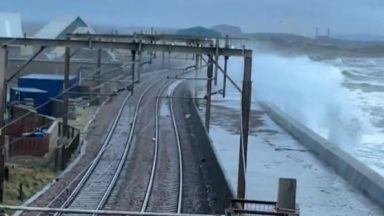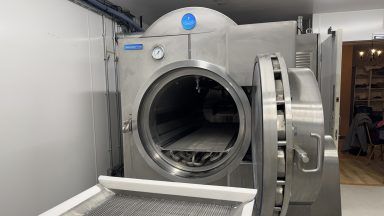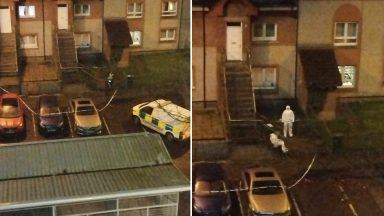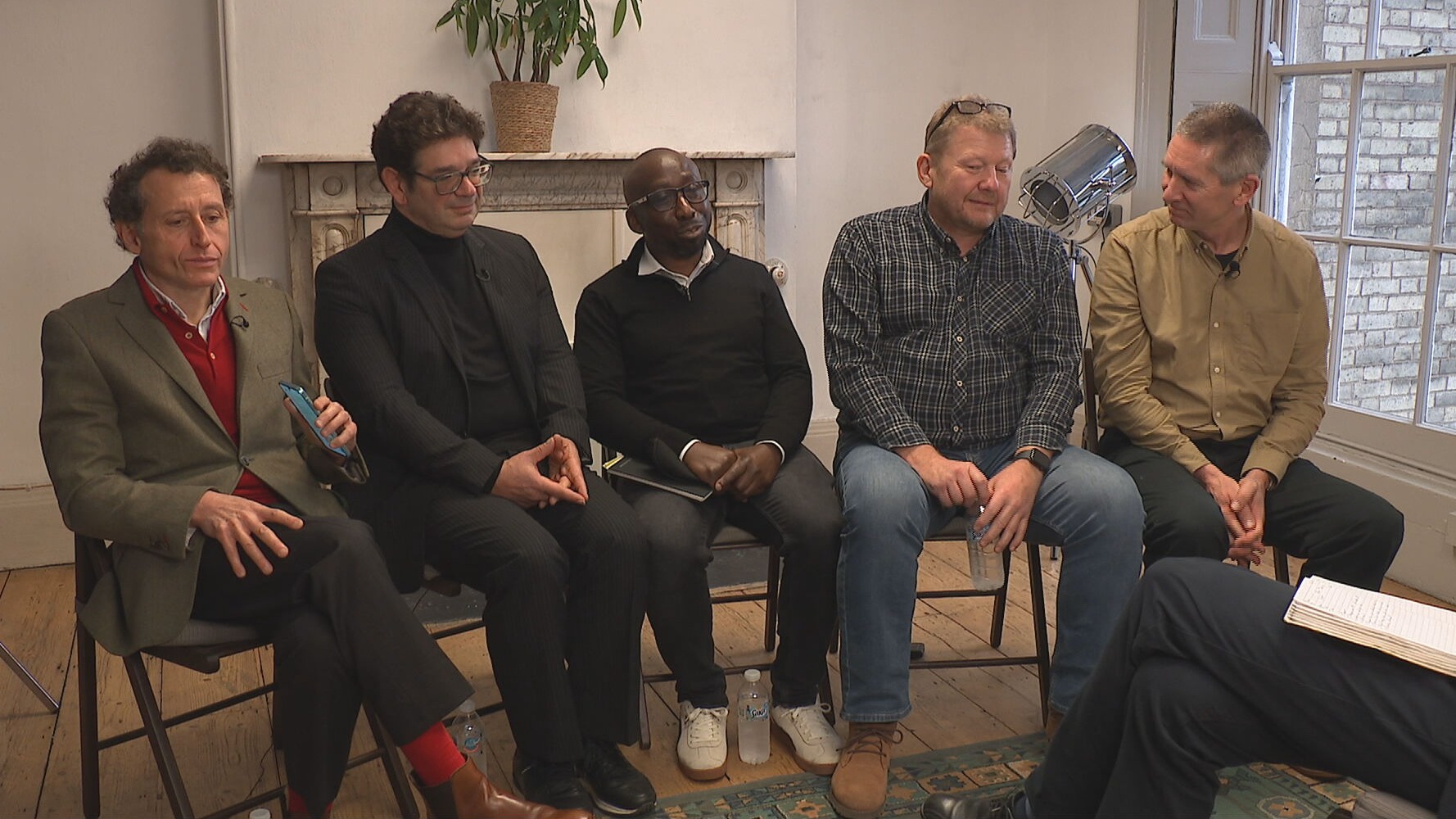Fears for the future of Scotland’s nursing workforce are growing, as fewer students opt to join the profession.
The Royal College of Nursing has warned the current workforce – which has about 5,000 vacancies in Scotland – has been worn down by years of understaffing and underinvestment.
But despite the wider challenges in recruitment, Glasgow Caledonian University (GCU) has had an increased intake on last year.
John Murphy, 48, is now in his second year as a mental health nursing student, and can’t wait to graduate.
He said: “It seems only yesterday we were sitting in that lecture hall on induction day. It goes in really quick and before you know it you’ll be wearing your powder blues and you’ll be qualified…and when you get that degree the world’s your oyster”.
At 48 years of age, he’s one of the programme’s mature students.
“I’d been out of school for 30 years, I’d never written an essay. I’m not going to deny it can be difficult. It’s all about time management and the financial situation could be better.
“But it’s not forever is the way I see it.”
The nursing student pool in Scotland is no longer predominantly school leavers – many are mature students with existing financial commitments.
Lorne Gillies is in her third year of training to become a learning disability nurse and – at 31 – she too falls into the category of “mature student”.
She said: “It has been one of the best experiences of my life. The only thing I’d say is that I wish I’d done it back when I was 17. Obviously being a mature student I’ve got big girl responsibilities now.”
A significant drop in student nursing applications across Scotland has stoked fears for the future of the profession.
In a recent report the Royal College of Nursing highlighted the significant financial pressures facing student nurses.
A staggering 99% said money was a worry, with nearly two thirds considering dropping out of their course altogether due to financial stress.
Eileen McKenna from the Royal College of Nursing said: “If measures aren’t taken soon to address the crisis, encouraging more people into the profession, and equally retaining people already in the profession then the impact is going to be significant.
“Those vacancies will continue to increase, putting pressure on those still working, and ultimately that will impact on patient care.”
The Scottish Government’s Nursing and Midwifery Taskforce says its mission is to retain staff as well as attract new nurses – like those still in training at GCU.
Valerie Ness, head of department for nursing and community health at GCU, said: “We’ve got about over 800 [this year] which makes up about a quarter of the Scottish intake of nursing students.
“They have supervisors and practice assessors, and personal tutors to support them, so if they have any concerns, they are very clear about what they’d do about that.
“But the feedback is that they really enjoy being out in placement, and that’s where they really begin to feel what it’s like to be a nurse.”
A Scottish Government spokesperson said: “The attraction and retention of people into nursing and midwifery is a key part of the remit of the Nursing & Midwifery Taskforce.
“We continue to provide the highest non-repayable, non-means tested bursary support in the UK at £10,000 for eligible students, as well as reimbursement of expenses and a range of allowances. We value our student nurses and midwives and that is why they receive the highest student bursary in Scotland.
“Our £568m pay deal for NHS Agenda for Change staff means they are, by far and away, the best paid anywhere in the UK. We are also committed to delivering the most progressive package of terms and conditions reform in decades.
“Applicants through UCAS can apply for up to five undergraduate programmes at a time and can, and do, apply to nursing and midwifery programmes over the summer as part of the annual clearing process.
“Data on acceptances into nursing programmes will start to be known in October when that process has completed. This is set against a backdrop of ten years of consecutive increases in funded places, and was still higher than pre-Covid levels.”
Follow STV News on WhatsApp
Scan the QR code on your mobile device for all the latest news from around the country



























